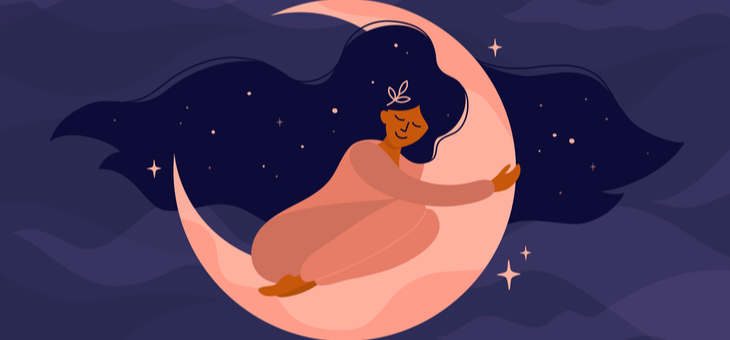It sounds like something out of a fantasy novel, but could our sleeping patterns be influenced by the phases of the moon? Research suggests this may be the case, but for only half the population.
The phases of the moon have influenced humans for thousands of years, in everything from agriculture to literature. But it turns out that the moon may be influencing much more than that.
Sleep is incredibly important to our health and wellbeing. When we don’t get enough shut eye, it can affect everything from your mental health to your weight and even your immune system.
Over the course of a lunar month (29.5 days), the moon’s apparent size in the night sky grows larger and brighter. The first half, where the moon appears to grow, is called the waxing period. The moon then gradually decreases in size during the waning period.
Read: How to get to sleep when you have a cold
In a study, researchers from the University of Uppsala in Sweden discovered that disturbed sleeping patterns and waking during the night were more common during the weeks when the moon is waxing.
But surprisingly, they found the effect only in men. Women’s sleep appeared to be “largely unaffected” by the phases of the moon.
“We used one-night at-home sleep recordings from 492 women and 360 men,” says Associate Professor Christian Benedict, co-author of the study.
“We found that men whose sleep was recorded during nights in the waxing period of the lunar cycle exhibited lower sleep efficiency and increased time awake after sleep onset compared to men whose sleep was measured during nights in the waning period.
“In contrast, the sleep of women remained largely unaffected by the lunar cycle.”
Read: Get deeper sleep and happier dreams with these five tips
It’s not clear why the moon influences men’s sleep but not women’s, but Assoc. Prof. Benedict’s team cited another study published earlier this year that showed both men and women tend go to bed later and sleep for shorter periods during the waxing phase.
The authors of that study contend that this behaviour may be related to our pre-industrial ancestors, when we would have needed bright moonlight to hunt at night.
As men filled the hunter role more often throughout history, the moon growing larger in the sky may still signal men’s bodies to be up and alert.
Whatever the link between the moon and men’s sleep, it’s important to address sleep issues as soon as they arise.
Read: Can you trust the information on your sleep tracker?
Sleep plays a crucial role in your physical health by regularly putting your whole body into a restorative state. Physically, a lack of sleep is directly linked to an increased risk of heart and kidney disease, high blood pressure, diabetes and stroke.
Mentally, sleep helps us process information from our short-term memory into our long-term memory. A lack of sleep can have a big impact on mental health and has been linked to depression, anxiety and bipolar disorder.
Getting enough sleep can be hard. Just finding eight consecutive hours in a day is a struggle for most. But sleep can literally change your life.
Do you or the men in your life struggle to sleep for half the month? How much sleep do you usually get a night? Let us know in the comments section below.
If you enjoy our content, don’t keep it to yourself. Share our free eNews with your friends and encourage them to sign up.

